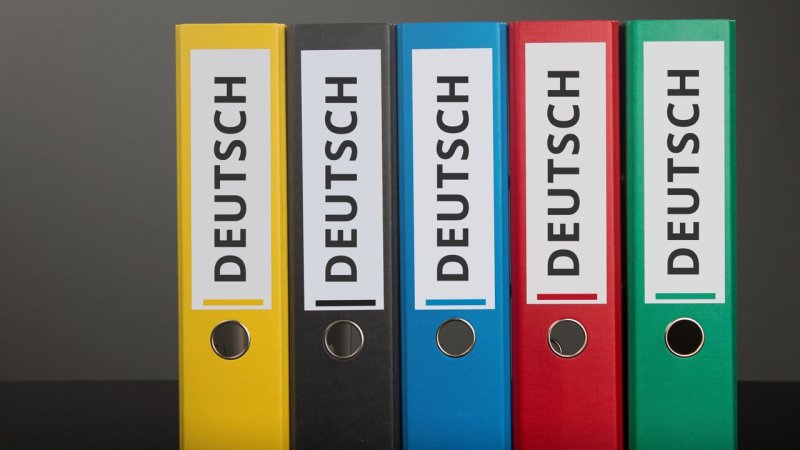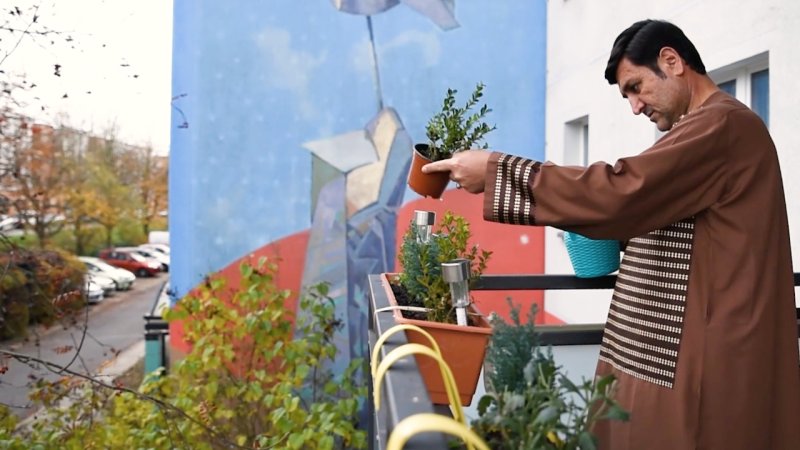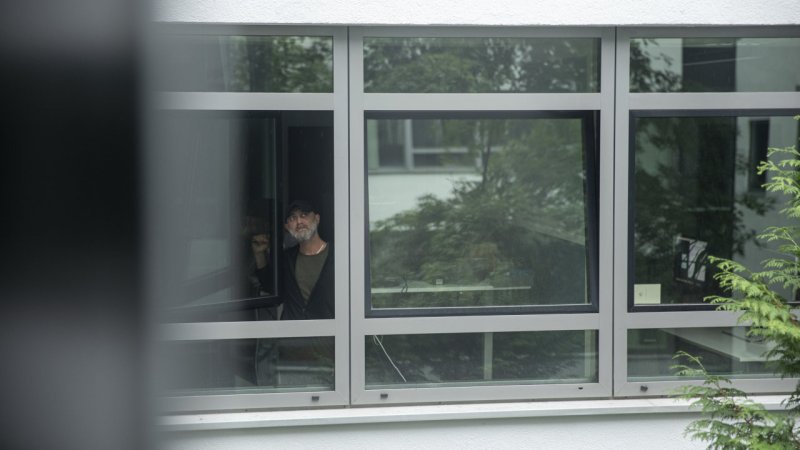If you have recently arrived in Germany, you may find that the language is one of the biggest challenges to face. In order to interact with German authorities, study at university, do vocational training or find a job, you often need to be able to communicate in German. Knowing German also facilitate your settling down in Germany and enables you to connect to other German-speakers on a personal level.
In an integration course, not only you will acquire the language, but also learn quite a lot about German culture and society. In this page, you can find out what exactly an integration course is and whether you can take part in it – you will also learn about the offices which can potentially cover the respective costs.
An integration course is a combination of language and orientation courses and is supposed to aid you settle in Germany. The language course usually entails 600 teaching modules, which concludes with a final exam („Deutsch-Test für Zuwanderer" or DTZ for short) at the B1 level. An integration course covers topics such as work, shopping, communicating with authorities and writing emails/letters. In an orientation course, however, you learn mainly about the history, culture, society and politics in Germany. The orientation course usually entails 100 teaching modules and concludes with a final exam.
In addition to the regular integration courses, there are integration courses specifically designated for women, parents or young adults (up to 27 years). There are also literacy courses including 1000 teaching modules for the following groups:
- People who cannot read or write well in any language
- people who are not familiar with the Latin alphabet but can read and write in another language.
For fast learners, there are intensive courses, in which they learn the same as everyone else in regular integration courses but in less time.
Whether you can participate in an integration course depends on your residence status.
I have a residence permit: In principle, all foreign citizens (living in Germany for at least one year) who have obtained a residence permit because of their employment, or due to family reunification or by virtue of their recognition as asylum seekers, refugees or individual entitled to subsidiary protection can take part in an integration course. The only exceptions are children, adolescents and young adults who attend school and those who already speak German well enough. Holders of a residence permit in accordance with §25 (5) and §24 of the Residence Act can apply for participation in the integration course. You can find out more in the section "Where and how can I register for an integration course?".
I have a temporary residence permit ("Aufenthaltgestattung"): If your asylum procedure is ongoing, your right to participate depends on your country of origin or date of entry to Germany:
- If you come from a country with a "solid prospect to stay" ("guter Bleibeperspektive"), you can take part in an integration course. Currently, asylum seekers from Eritrea, Somalia, Syria and Afghanistan are considered to have a "solid prospect to stay" in Germany. To participate, you first need to apply. To learn more, read the section: "Where and how can I register for an integration course?".
- During the Dublin procedure, you are not, in principle, allowed to take part in an integration course. However, no one is prohibited from submitting an application; it may be that you will still have a chance to participate in an integration course. The best is to visit a counselling centre and let experts help you. You can read what you can do if your request is rejected in the section “I am not allowed to attend an integration course – how can I learn German?”.
- If you come from a "safe country of origin," you are not allowed to take part in an integration course. Currently, the following countries are considered to be safe countries of origin: all EU member states, Albania, Bosnia & Herzegovina, Georgia, Ghana, Kosovo, North Macedonia, Montenegro, Republic of Moldova, Senegal, and Serbia.
- For all other countries, the following rule applies: If you came to Germany before 31.07. 2019, and you are registered as a jobseeker at the Federal Employment Agency or, in case you work or are going through a vocational training programme, you may take part in an integration course after three months. To do so, you need to apply first. To learn more, read the section: "Where and how can I register for an integration course?"
I have a tolerated stay permit ("Duldung"): With a tolerated stay, in principle, you are not entitled to participate in an integration course. There are, however, exceptions to this general rule. Namely, people who have an "Ermessensduldung" (according to §60a paragraph 2, sentence 3 of the Residence Act), a tolerated stay for the purpose of vocational training ("Ausbildungsduldung") or a tolerated stay for the purpose of employment ("Beschäftigungsduldung ") may attend an integration course. If you have one of these types of "Duldung", you must submit an application to the BAMF to attend an integration course. You can read more in the section "Where and how can I register for an integration course?".
When a person can attend an integration course, they receive a so-called “obligation to take an integration course” (“Verpflichtung zum Integrationskurs”) from the Social Welfare Office, the Immigration Office or the Jobcenter. If you receive such a letter, you are obliged to take part in an integration course.
Exceptions are:
- Children, adolescents and young adults attending school
- Persons who are doing vocational training ("Ausbildung ")
- People who work full-time (in a job subject to social insurance contributions)
- Persons who, for a valid reason, cannot participate in an integration course, for instance, because they have to take care of a family member.
When the Immigration Office ("Ausländerbehörde") hands you your residence permit, they will also let you know whether you are obliged to attend an integration course or not.
Please note: If you receive benefits from the Jobcenter or Social Welfare Office (i.e., “Bürgergeld” or asylum seekers’ benefits), they may also require you to attend an integration course.
If you can (and must) take part in an integration course, the Immigration Office (or the Jobcentre or the Employment Agency) will issue you a certificate of eligibility ("Berechtigungsschein"). If you have not yet received such a certificate, we recommend that you contact the relevant office yourself and apply for a certificate of eligibility.
With this document, you can register at the school of your choice directly. Your local Immigration Office and the Jobcentre responsible for you can provide you with a list of schools offering integration courses in your area. Alternatively, you can use the search engine on the BAMF or the KURSNET platform to find a class nearby. If you need help with the search, you can contact the youth migration service or migration counselling centre in your area.
If you have not received a certificate of eligibility, you must submit an application for admission to an integration course at the Federal Office for Migration and Refugees (BAMF). You can download the form in German or another language from the bamf.de. There you will also find the address to which you need to send the application. The BAMF then decides whether you should attend an integration course or not and will inform you about the results per post.
Please note: You must start your integration course as soon as possible after registration. You have one year to do so –after that, your eligibility certificate will expire. This also applies if you interrupt the course for more than a year.
Please note: Eligibility to take part in the integration course does not depend on your place of residence (e.g., postal code or district). This means that if you, for example, currently live in a neighbouring federal state, you can also visit the integration course there. This, however, does not apply to the so-called state-funded courses (“landesgeförderten Kursen”)– these courses are only funded in certain federal states and must also be attended there.
Before enrolling, make sure that your integration course is easily accessible and within commutable distance, even if it doesn't necessarily take place in the neighbourhood where you live. Sometimes it may even possible to travel to the course with a "Deutschland Ticket", which can be quite practical. Moreover, you may also be reimbursed for some of the travel costs. So, if you are entitled to participation in an integration course, you can usually choose at which location you’d prefer to attend and should check whether you can have your travel expenses reimbursed. This is to help you find the course that is right for you and make the most of what is on offer.
The BAMF bears most of the costs of integration courses. The participants only have to pay €2.29 per session (As of July 2024). If you receive benefits from the Jobcentre or Social Welfare Office, you can apply for a cost exemption, so that the BAMF takes over the entire cost of the course -and you do not have to pay anything. You can download the designated application form from bamf.de- fill out the form, and send it to the BAMF branch office responsible for you. You can find the responsible BAMF office at bamf.de. Furthermore, you can also ask your school staff for help; they can complete and submit the application on your behalf.
Please note: If you successfully complete the integration course within 2 years, you can get half of what you have paid back. For the reimbursement, fill out the application ("Antrag auf Kostenrückerstattung") in German and send it (together with a copy of your so-called “Integration Course Certificate”) to the Federal Office for Migration and Refugees. The staff at your language school can also help you with it.
The integration course usually starts at the A1 level, so you do not need to have any prior German knowledge to participate. Before the classes begin, there is a placement test which enables the school to know if someone already knows some German. This person may be able to skip one or more courses because of their prior knowledge.
There are full-time and part-time language courses, but the integration courses are mostly full-time. That means you should attend classes for several hours, every day, from Monday to Friday. Some courses take place in the morning, others in the afternoon or early evening.
When you complete the integration course and pass the exam, you will be handed a certificate. Remember, you need to keep this certificate in a safe place.
If you have failed the exam despite attending the classes regularly, you can apply (only once) for another 300 hours of learning (i.e. „Antrag auf einmalige Wiederholung von 300 Unterrichteinheiten“). You can find the application form at bamf.de.. Upon approval, you will be granted the opportunity to repeat parts of the integration course and do the exam again. You must send the application to the BAMF branch office responsible for you.
Even if your application for participation in an integration course is submitted but rejected, there are still many other opportunities for you to learn German. In many cities, free German courses are offered by volunteers. Many of these courses take place in Initial Reception Centres, shared accommodation facilities or social and cultural organisations. You do not need a certificate of entitlement to participate in these courses or meetup groups.
Moreover, there is the possibility of participating in the German courses subsidised by the federal states. These courses are structured similarly as integration courses.
In addition to free German courses, you can also take advantage of a vast variety of online learning opportunities, including web pages, video tutorials and apps. The Goethe Institute and Deutsche Welle are among those German cultural and media institutions which offer online learning materials for German learners.
You can find out more about these opportunities in our chapter "Learning German".
If you are entitled to take part in an integration course, you can register for the course during the period in which your certificate of eligibility is valid. The deadline is specified in the certificate of eligibility the BAMF has issued you. If you do not enrol in time, the Jobcenter or the Social Welfare Office may reduce the financial aid you receive.
You can find more information on integration courses on the website of the Federal Agency for Migration and Refugees (BAMF).
On the BAMF website, you can find an overview of the different free online options available for learning German.




